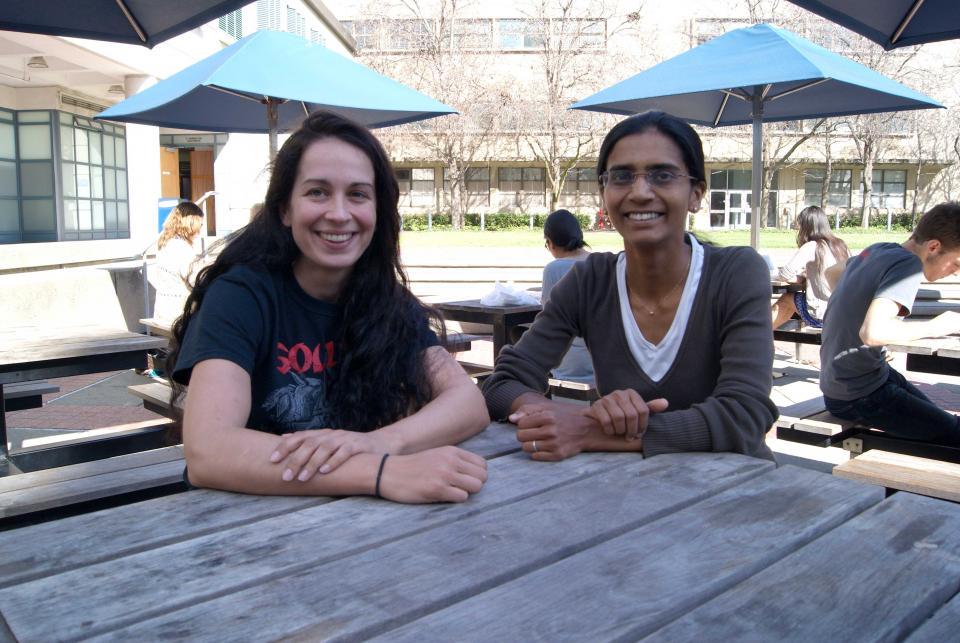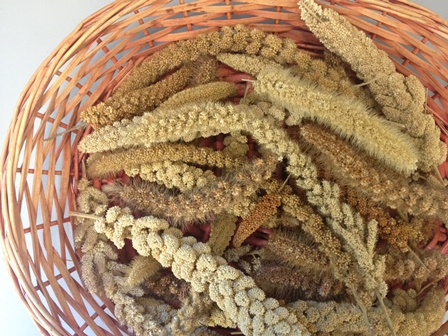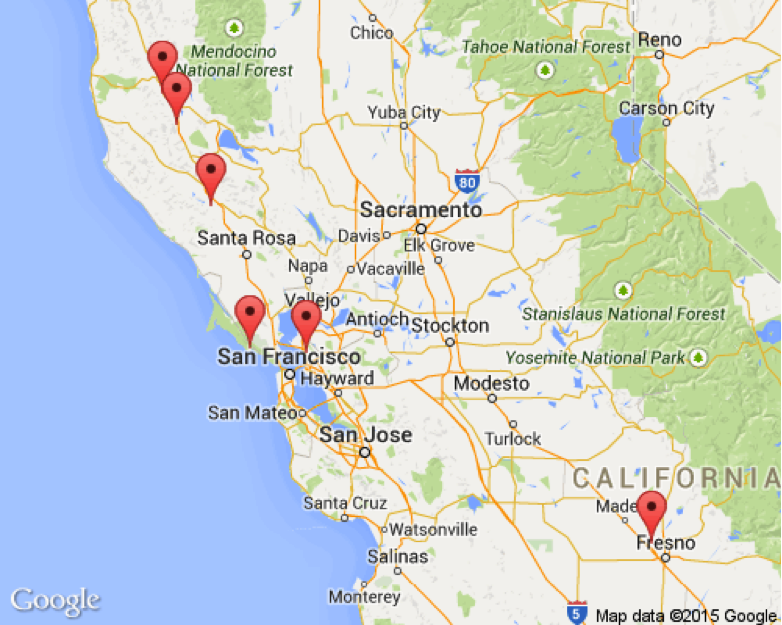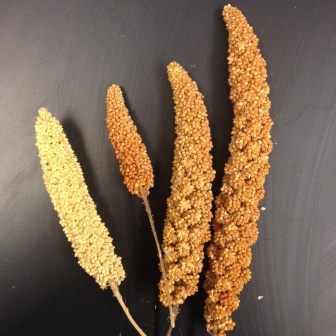Nutritious, gluten-free grain requires little water


By Karyn Houston, PMB
A group of researchers from UC Berkeley is launching a campaign to grow, cultivate and market millet, a nutritious, gluten-free grain that needs little water and is rich in B vitamins.
Currently in the U.S., millet is used primarily in bird feed, but Postdoc Amrita Hazra in the Taga Lab in the department of Plant & Microbial Biology is looking to change that.
The Millet Project team has received $24,040 from the Berkeley Food Institute to explore millet cultivation at six locations in California, make products from it, then introduce those products to the public at fairs, farmers markets and food shows. The team includes:
- Amrita Hazra, PMB
- Patricia Bubner, Energy Biosciences Institute
- Gavin Abreu, Haas Business School,
- Sarah Hake, PMB, US Department of Agriculture, Plant Gene Expression Center
- Peggy Lemaux, PMB
Background About Millet

Corn, wheat and rice make up about 89 percent of worldwide cereal production, leading to a drift toward monoculture farming, Hazra said.
"This, in turn, has caused losses in the variety of food and consequently nutrients in our diet, which together have aderse environmental and nutritional impacts," said Hazra, whose research in the Taga Lab focuses on biosynthesis of Vitamin B12.
Millets are a group of highly nutritious, gluten-free cereal grains, of which some varieties are known to be drought-tolerant and can be cultivated on drylands. They are C4 grass plants in the Panicoideae family, similar to sorghum and maize.
Millets commonly contain higher amounts of protein and micronutrients when compared to corn and rice, and similar amounts as wheat, and are drought-tolerant and require little water for cultivation.
Hazra and her team would love to see millet make the meteoric rise that quinoa made a few years back, when it went from being a minor grain crop in the Andean region to enjoy well-known prominence on supermarket shelves throughout the U.S. due to its nutritional qualities.

April 2015: Six locations in California where pearl, proso, foxtail
and Japanese millets are being grown as a part of the Millet Project
More About Millet
In addition, millet can be:
- Grown on skeletal soils
- Is not dependent on the use of synthetic fertilizers
- Is a "short rotation" crop due to its harvesting time of 70-100 days, and some early maturing varieties are used in dryland communities where no other crops can be grown.
- The group will test small-scale cultivation of four kinds of millet – proso, pearl, finger and foxtail – at six different locations in Northern California (Berkeley, Davis, Mendocino, Ukiah, Healdsburg, and Bolinas).
The team will then conduct a study of the cost-benefit of growing millets to measure its profitability per acre. This will allow farmers to better compare millet production against other crops, which is an important component of the plan to increase awareness of millet's appeal to farmers.
Publicity
Finally, the goal is to introduce millet to the local community through local millet exhibits, educating consumers about the many agricultural, economic and sociocultural advantages of the grain. Initial efforts will be concentrated in Berkeley, specifically at the Gill Tract Community Farm.
"Eventually, we propose to have ‘millet-growing exhibits’ where people from the community are invited to visit the Berkeley Gill Tract community farm to see the millet crop and also taste samples of millet-based food," Hazra said.
Seed Grant Forum
Wednesday, May 6, 2015, 2 – 4pm
Alumni House Toll Room
University of California, Berkeley
Free and open to the public, refreshments provided.
LINKS
Amrita Hazra
Patricia Bubner
Sarah Hake
Peggy Lemaux
Berkeley Food Institute
Taga Lab
Sarah Hake Lab Page
Peggy Lemaux Lab Page
food.berkeley.edu/seed-grant-forum
themilletproject.wordpress.com
energybiosciencesinstitute.org
